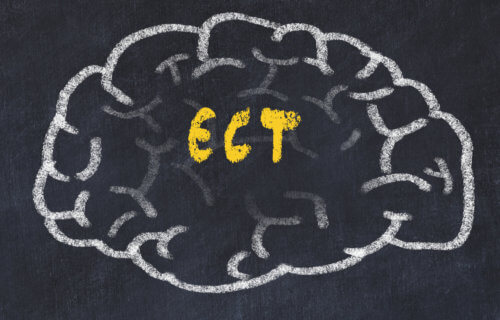BAMBERG, Germany — Infamously depicted in the classic film “One Flew Over the Cuckoo’s Nest,” electroconvulsive therapy (ECT) is considered by most nowadays to be barbaric, outdated, and ineffective. Surprisingly, however, new research suggests ECT may be misunderstood after all. Scientists posit that ECT is a legitimate treatment option for various mental conditions, and point to years of misuse and countless negative media portrayals to explain its bad reputation.
The study suggests ECT ranks among the top treatment options for conditions including depression and schizophrenia. Over 3,100 ECT sessions in a German psychiatric hospital conducted on 157 patients between 2018 and 2020 were assessed to reach these conclusions.
Across all of those cases, not a single patient experienced a permanent impairment and only three sessions (<0.1%) resulted in a “potentially life-threatening situation.” Importantly, even those three problem scenarios were successfully resolved with the assistance of a medical intervention. Meanwhile, less than 20 percent of patients reported any mild adverse consequences such as cognitive or cerebral disturbances. Even those lesser symptoms, though, were almost always associated with multiple ECT sessions using higher-than-normal electrical stimuli.
“Our research provides evidence that the negative attitude toward ECT – one of the most effective treatments for psychiatric disease – urgently needs to be corrected,” says corresponding author Prof. Göran Hajak from the Social Foundation in Bamberg, Germany in a statement.
“Difficult-to-treat depression is a mental disorder that has been highlighted by the World Health Organization as one of the leading causes of human disability worldwide, but the irrational public fear of suffering permanent health damage from ECT has largely restricted its use in psychiatry,” Prof. Hajak continues. “Only around 2% of eligible patients with severe and treatment-resistant depression are currently treated with ECT worldwide.”
ECT provides ‘brain reset’ that may ‘benefit many patients’
Unlike how it’s portrayed in most fictional movies or TV shows, ECT is conducted while the patient is under anesthesia, with a single brief epileptic seizure being induced by doctors. The equipment used for ECT produces a carefully controlled electrical current that evokes a “discharge” of nerve impulses within the brain while keeping the rest of the body untouched. This process is believed to cause a “brain reset” in terms of functions underlying several mental conditions.
Study authors note that one aspect of ECT the research could not account for was variations in procedures and practices between locations. They stress that ECT only be performed under extensive supervision with all of the proper precautions in place. They advise each individual ECT location to regularly analyze their safety data and risk profile.
“We hope that our data will bring the discussion about ECT to a more factual level because the low risk profile of ECT suggests that broader use could benefit many more patients,” Prof. Hajak concludes.
The study is published in Frontiers in Psychology.

Interesting as to how it may have affected my mother in the late 50’s to 1963. She had been treated several times, as I recall, with it for some very erratic behavior over that time period until she committed suicide.
I was too young then (13 when she died) to fully understand what all she was going through (including our local county taking away custody of me to live in a type of boarding school, which I mostly enjoyed, the last 2 years before her death). All I can recall is that she “went away” at times which were later explained to me in old letters and by her MD brother, my uncle, as shock treatment. I am not too willing to give this kind of treatment much credence.
Fortunately, I do not seem to have inherited much of her mental make-up, albeit with some depression at times, which I have worked through myself with the help of a more “normal” sort of family of my own. Probably more due to being hard of hearing all my life, which has made me somewhat “non-social”.